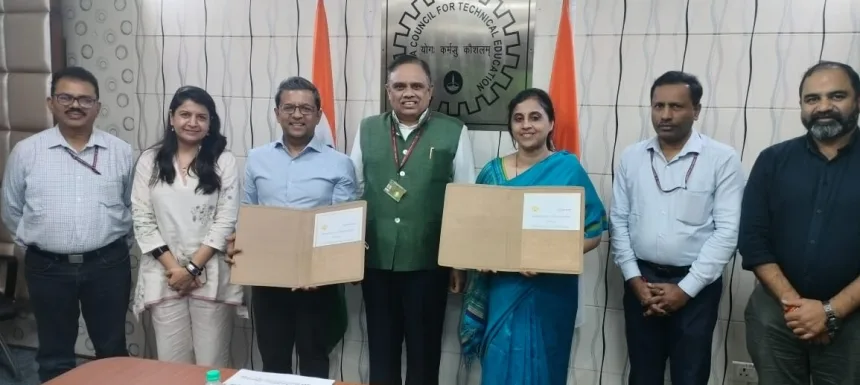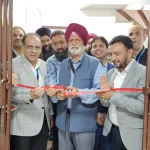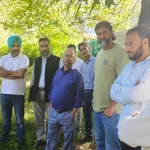New Delhi, Sept: 06: The All India Council for Technical Education (AICTE) has signed a landmark Memorandum of Understanding (MoU) with OpenAI to promote cooperation and innovation in Artificial Intelligence (AI) in education.
According to a statement issued here, this collaboration is set to benefit students and faculty across AICTE-affiliated institutions mainly from Tier-2 & Tier-3 cities in India by enhancing their access to advanced AI tools and learning opportunities.
Under the agreement, OpenAI will provide 1,50,000 free ChatGPT Go licenses for six months to students and faculty members. A pilot launch of 5,000 licenses will precede the nationwide roll-out to ensure smooth implementation. In addition, OpenAI will extend access to its OpenAI Academy and conduct ‘Train-the-Trainer’ programs for faculty, enabling them to effectively integrate AI into teaching and research.
AICTE will play a central role in identifying institutions, facilitating user access, and ensuring maximum utilization through communication campaigns and engagement activities. Both AICTE and OpenAI will jointly assess learning outcomes, track usage, and develop case studies showcasing the impact of AI in education. The MoU is designed to function in the academic interest with a non-profit approach, ensuring inclusivity and accessibility. The MoU was formally signed by Prof. Shyama Rath, Member Secretary, AICTE, and Dan Cook, Deputy General Counsel, OpenAI India.
Speaking on the occasion, Prof. T.G. Sitharam, Chairman, AICTE, said, “This partnership with OpenAI is a significant step towards empowering our students and faculty with cutting-edge AI tools. By democratizing access to advanced technologies like ChatGPT, we aim to foster innovation, critical thinking, and problem-solving skills in the classroom. AICTE has declared 2025 as the Year of AI to foster and promote Artificial Intelligence in education, and this collaboration is perfectly aligned with that vision. AI is going to play a transformative role in shaping the future of education, and this initiative ensures that India’s youth are well-prepared for the opportunities and challenges ahead.”
Prof. Sitharam recommended that OpenAI to extend the free license period beyond six months for the greater benefit to students and faculty members. He also emphasized the need for OpenAI to give special priority to institutions in tier-2 and tier-3 cities, so that technological advancements reach every corner of the country.*






